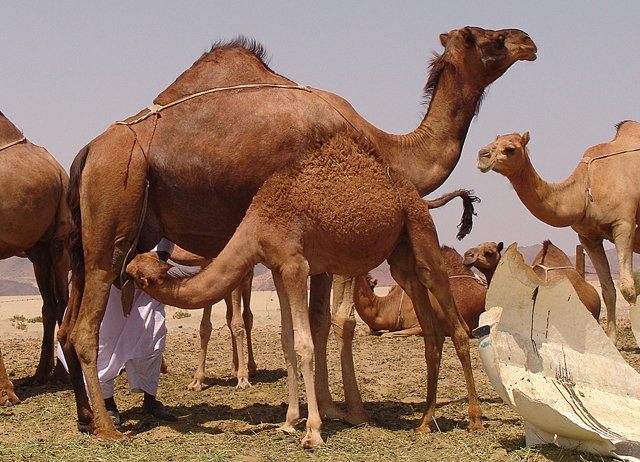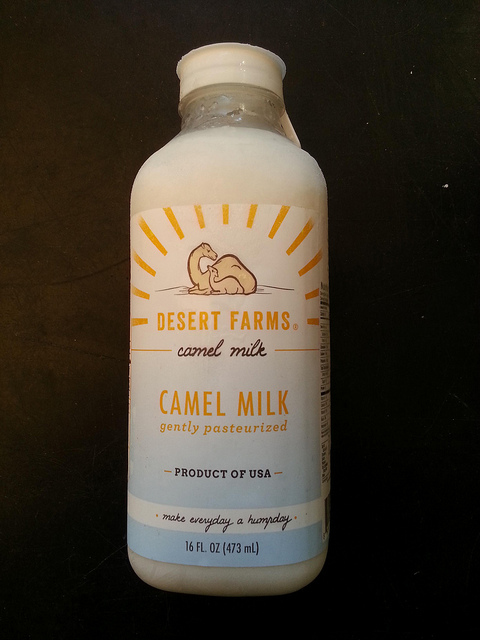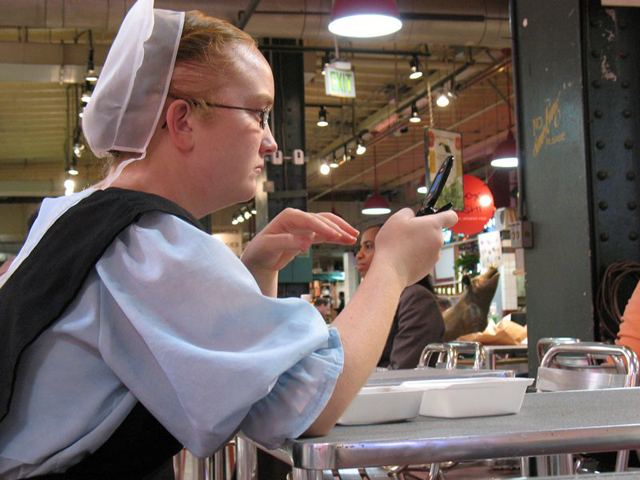Some Amish farmers have been raising camels and selling their milk to a Saudi entrepreneur who then sells it to people who are allergic to cow’s milk. CNN published an article last week about the businessman, a Muslim raised in Jeddah, Saudi Arabia, and his Amish and Mennonite suppliers.

Walid Abdul-Wahab had drunk camel’s milk on occasion as a kid in Saudi Arabia but he got the idea for establishing a business of marketing camel’s milk while he was studying at the University of Southern California in Los Angeles in 2008. He was struck by the health consciousness of the people in that state and it occurred to him that camel’s milk could become the next health food craze. He remembered the luxury of camel’s milk from home and wondered if he could form a business based on a positive, beneficial product that he knew about from his own country.
He knew that the Bedouin tribes throughout the Middle East had been drinking camel’s milk for eons, but wondered if Americans could learn to consume it also. It is sweeter and slightly more salty than cow’s milk, and it may be healthier. The problem, he realized, was where could he obtain camel’s milk? He quickly learned that the few sources inthe U.S. were from some Amish and Mennonite farmers in Colorado, Missouri, Ohio, and Pennsylvania.

He set up his new business, Desert Farms, which sells camel’s milk through the company’s website plus supermarkets and health food shops. Abdul-Wahab argues that the other products available as substitutes for cow’s milk, such as soy, almond, coconut and rice milks, are not ideal. They either do not taste as good or they are less nutritious, he believes.
He contacted Amish and Mennonite farmers who were raising camels and selling them for $25,000 and more or leasing them to churches (for nativity scenes) or to zoos. When he began his business in 2014, no one in the U.S. was selling camel’s milk. He had a lot of work to do to persuade the Plain People that there might be a market for the product. But he persisted, convinced seven farmers to become suppliers, and in 2015 Desert Farms became the first company to get a USDA license to sell camel’s milk.

He found that working with the Amish and Mennonites presented some special challenges. Some do not have cell phones—they make phone calls from telephone booths that serve entire Amish communities. Most do not have access to the internet. In two farms that would allow it, he was able to install fax machines that connected to phone lines so he could send things like labels and orders. Since the farmers were already equipped to handle milking cows, they could easily use the same equipment to milk camels.
He soon discovered that his suppliers did not like to sign contracts. Their culture, much like that of Saudi Arabia, is founded on relationships built upon trust. Those relationships extend well beyond the bounds of business: he has been invited to attend numerous weddings and funerals. He also observed that the Amish, much like the Muslims in Saudi Arabia, do not depict sacred people or objects in their homes. He feels that their lack of crosses is very similar to the way Islam is practiced in his country.
As his business has grown, Abdul-Wahab has found that working with the small, independent Amish farmers, and particularly the difficulty of communicating with them, has raised insurmountable problems. So he has consolidated his source of supply at a single, large Amish farm in Missouri. That farmer uses cell phones and electricity and rents other camels as needed from nearby farms. The centralization has allowed Desert Farms to sell standardized-tasting camel’s milk.
However, it is not cheap—one pint sells for $18. In contrast, eight-times as much organic cow’s milk, one gallon, costs around $6 – $7. But to judge by his comments, it is worth it.